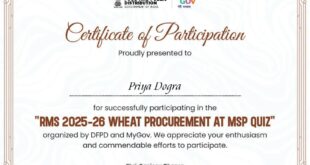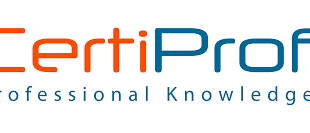SEMrush Local SEO is a subset of SEMrush’s broader suite of digital marketing tools, specifically tailored to help businesses optimize their online presence for local search. Here’s how SEMrush supports local SEO efforts:
- Local Keyword Research: SEMrush enables users to identify high-value keywords that are relevant to their local area. This includes not only general keywords but also geo-specific terms that potential customers might use when searching for products or services in their vicinity.
- Local SEO Audit: The platform conducts comprehensive audits of websites to pinpoint areas for improvement in local SEO. This can include technical issues, on-page optimizations, and off-page factors like local citations and backlinks.
- Local Listings Management: Managing business listings across various online directories is crucial for local SEO success. SEMrush helps users manage and optimize their listings on platforms like Google My Business, Bing Places, Yelp, and others, ensuring consistency and accuracy of business information across the web.
- Local Rank Tracking: Monitoring local search rankings is essential for understanding how well a business is performing in local search results. SEMrush provides tools to track keyword rankings at the local level, allowing businesses to assess their visibility and make data-driven decisions to improve their local SEO efforts.
- Local Competitive Analysis: SEMrush allows businesses to analyze their competitors’ local SEO strategies, identifying strengths and weaknesses and uncovering opportunities to gain a competitive edge in local search results.
By leveraging SEMrush’s Local SEO capabilities, businesses can enhance their online visibility, attract more local customers, and drive foot traffic to their physical locations, ultimately leading to increased sales and revenue.
OFFICIAL LINK FOR THE Semrush Local SEO Certification EXAM: CLICK HERE
Semrush Local SEO Certification Exam Answers
Question 1: How do you know if you need Local SEO?
- When you Google important keywords, the map pack is displayed.
- You have an online shop, and want to partner with the local storehouse.
- You often search for “pizza delivery” from your office.
Question 2: There’s no difference in ranking factors between traditional and Local SEO, the only thing different is the signal weights.
- True
- False
Question 3: Name the solid local link building strategy:
- Event sponsorships
- Local meetups
- All of the listed
- Local bloggers
- Neighborhood watch sites
Question 4: The most important content tip from Greg is:
- Read your content out loud.
- Keep it short and sweet.
- Make sure it’s not a duplicate.
- Include the cities you service.
Question 5: For Local SEO, citations are
- A foundational signal
- The most powerful ranking signal
- Links that point to your business
Question 6: The ideal review score is:
- 4.5 to 4.8
- A perfect 5.0
- 4.2 to 4.5
- 4.8 to 5.0
Question 7: You should reply to
- Only negative reviews
- Every single review
- Only positive reviews
- Only a few positive and a few negative
Question 8: Your Google My Business listing is
- Only important if you’re a service-area business
- Not as important as it used to be
- Not needed if you have a website
- Basically your new home page
Question 9: If you’re using the standard “What’s New?” template, Google Posts stay live for
- One month
- 7 days
- Forever
- 24 hours
Question 10: You’re allowed to ask and answer your own questions in the GMB Questions and Answers section.
- False
- True
Question 11: The Link Building tool allows you to discover whether an acquired backlink was indexed by Google. True or false?
- False
- True
Question 12: If you search “pizza delivery” at your office and at home, the results look exactly the same.
- False
- True
Question 13: Links from local businesses help with local search visibility.
- True
- False
Question 14: The signals that matter for ranking in the map pack are weighted differently than for ranking in localized organic results.
- True
- False
Question 15: Listing the cities you serve in your content will help you show up in those cities.
- True
- False
Question 16: NAP stands for
- National Auto Parts
- Network Access Point
- Name Address Phone
Question 17: Google only cares about your total review score.
- False
- True
Question 18: Your Google My Business information appears
- On desktop results only
- On mobile results and Google Maps
- On mobile, desktop, and Maps searches
- On mobile results only
- On Google Map results only
Question 19: Clicking on a search result and then returning quickly to Google and clicking another result is called:
- Google Jumping
- Pogo Sticking
- Click Through Rate
- Bounce Rate
Question 20: GMB Questions and Answers is a messaging system that allows customers to ask the business a question, and only the business can answer.
- False
- True
Question 21: Google Data Studio is awesome because
- Greg says so
- All of the listed
- You can customize reports per client
- You can create custom reports
- You can combine data sources
 Priya Dogra – Certification | Jobs | Internships
Priya Dogra – Certification | Jobs | Internships



